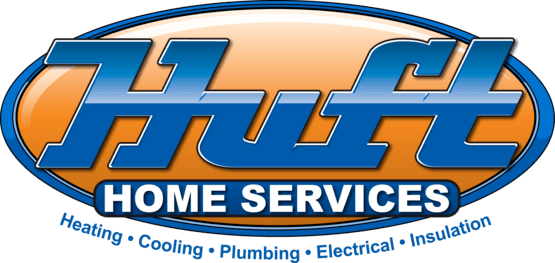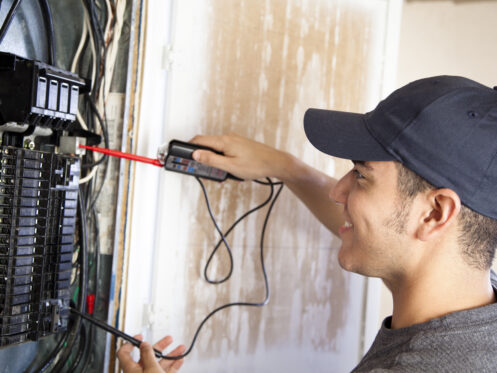If you are like most people, you want your electrical system to work properly and supply you with the electricity you need to power your daily life. Unfortunately, many people fail to regularly inspect their home’s electrical system until a problem arises. This can create a variety of issues, many of which could have been averted with just a basic inspection. If your home is older, or you simply want to be sure your home’s electrical system is safe and functional, create an inspection checklist and include the following items.
Examine Outlets and Switches
Your electrical outlets and switches are some of the most frequently used electrical fixtures in your home. For this reason, you must be sure to inspect them from time to time. Test them to ensure they can supply energy without overheating. If any outlets are too hot, you should talk to a professional about replacing them. Retighten connections to wires and screws – they can become loose over time. You should also be sure to use surge protectors to ensure your electrical fixtures are protected from power surges.
Check for Potential Problems
You rely on your home’s electrical system, but over time, it can develop problems. These problems can be diagnosed by an electrician, and often, they show signs before they develop. If you notice any of the following, there may be a problem with your electrical wiring:
- Flickering lights
- Buzzing or humming coming from outlets
- Circuit breakers that frequently trip
- Burning smells coming from outlets or switches
- Sparks flying from switches, fixtures, or outlets
Many of these problems can be dangerous and increase your risk of electrocution, so it is important to address them as soon as they are noticed.
Schedule an Inspection With an Electrician
Scheduling an annual inspection with an electrician is one of the best ways to maintain your electrical system. A trained electrician can closely inspect your electrical systems and help you pinpoint potential problems before they occur. Even if an inspection uncovers a problem that doesn’t need immediate repairing, you can budget for when it does. This can help you avoid emergencies in the future and ensure your electrical system operates optimally.
Check Your Electrical Panel
It’s easy to forget about your electrical panel, especially when it is hidden away in your attic, basement, or utility room. However, you don’t want to overlook your electrical panel, it is arguably the most essential part of your home’s electrical system. It serves to disperse and receive the electricity coming into your home. It also protects against overloads, and as time goes by, it can wear out. If your electrical panel is worn out or very old, you will definitely want to hire an electrician to replace or repair it.
Disregard Old and Damaged Extension Cords
If you’ve used an extension cord for more than 30 days, you may want to inspect it. It is important to note that using an extension cord should only be a temporary measure and you should never hook them up to air conditioners or space heaters. Make sure they are designed for indoor use and get rid of them if they display any frays, wires, or other signs of damage. You will also want to be sure your extension cord is rated to meet or exceed the electrical demands you place on it. Discard any extension cords that feel hot to the touch or have exposed prongs.
Inspect Appliances
Larger appliances, such as air conditioners, washers and dryers, refrigerators, ovens, and stoves get a lot of use. If you feel a current or shock coming from an appliance, you should turn it off and call an electrician immediately. Regularly cleaning your stove or cooktop’s exhaust hood and duct can ensure your kitchen is properly ventilated. Countertop appliances, such as coffee makers, toasters, and microwaves should always be plugged into a GFCI outlet. If your kitchen doesn’t have any GFCI outlets, an electrician can install them near water sources for you.
Install a Surge Protection System
During a storm, a sudden surge in electricity can damage your electrical system. Many homes utilize backup generators during power outages, but there is still a risk of a surge when the utility power is disrupted and restored. Surge protectors can protect multiple components of your electrical system. If you don’t think your house is safe from electrical surges, an electrician can install a whole-house surge protection system. These systems can protect your home no matter what causes a surge in electricity.
Check for Outdoor Electrical Problems
When most people think of electrical problems, they primarily think of the inside of their house. Electrical issues can occur outside, too, especially if you don’t schedule regular inspections. Check outdoor outlets and ensure their covers close completely. Be sure that outdoor electrical tools and other pieces of yard equipment do not come in contact with electrical wires.
Upgrade Wiring
Homes constructed before the 1980s often used aluminum instead of copper wiring due to the high cost of copper at the time. Unfortunately, aluminum wiring can be a fire hazard (it can overheat outlets and switch connections designed for copper wiring). A routine inspection can determine what type of wiring is in your home. If your home features aluminum wiring, you may need to get some electrical work done soon.
Test Smoke and Carbon Monoxide Detectors
Smoke and carbon monoxide detectors can save lives. For this reason, you must check them occasionally and replace their batteries when necessary. This is one of the most important things you can do for yourself and your family, so you don’t want to forget. Most of the time, you can figure out if your batteries need changing by finding the test button on the side or front of the unit. If it doesn’t make a sound, it is time for a change. Many devices will also make sporadic beeping noises when their batteries start to die.
Check Your Electrical Meter
Have you checked your electrical meter lately? If you haven’t, you may want to. It is easy to forget about your electrical meter since it is usually located on the outside of your home. Hire an electrician to look for potential problems such as broken seals, unstable attachment, rust or water damage, and chewing damage from rodents.
Change Lightbulbs
If you aren’t using light bulbs with the appropriate wattage, you could be damaging your home’s electrical system. An electrician can help you determine if you are using the correct wattage bulbs during an inspection.
Schedule an Inspection With Huft Home Services
Here at Huft Home Services, we offer a variety of electrical, plumbing, HVAC, and insulation services. We take great pride in serving the Sacramento metro area and we have been voted a “Neighborhood Favorite” by Nextdoor. We are fully committed to the satisfaction of our customers and professionalism. Contact Huft Home Services today to schedule an inspection of your home’s electrical system, we take care of electrical panel upgrades too.



